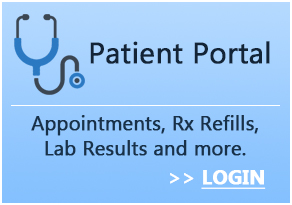
Endometriosis is a complex menstrual disorder in which tissue similar to the lining of the uterus (endometrium) grows outside the uterus, affecting other pelvic organs. It’s more than just “bad cramps”—it’s a chronic condition that can cause significant pain and impact fertility, daily functioning, and overall well-being.
In this post, the experts at Empire OBGYN explain the often-overlooked symptoms, why diagnosis can be delayed, and what treatment options are available. Too many women suffer in silence or are told their pain is normal. We’re here to say: your pain is real, and solutions exist.
Understanding Endometriosis: The Basics About This Menstrual Disorder
What It Is
Endometriosis occurs when endometrial-like tissue grows outside the uterus—commonly on the ovaries, fallopian tubes, bladder, and other pelvic organs. This tissue responds to hormonal changes during your menstrual cycle, thickening, breaking down, and bleeding—just like the uterine lining—but with no way to exit the body. The result is inflammation, scarring, and pain.
How It Affects You
Symptoms can include:
- Chronic pelvic pain
- Painful periods (dysmenorrhea)
- Pain during sex (dyspareunia)
- Pain with urination or bowel movements
- Infertility
- Heavy or irregular periods
The Impact on Daily Life
Beyond physical discomfort, endometriosis can significantly affect mental health, work productivity, and relationships. Anxiety, depression, and emotional distress are common.
Common Myths About Endometriosis
- Myth: Severe period pain is normal.
Truth: It’s not. Persistent or intense period pain should be evaluated. - Myth: Pregnancy or hysterectomy cures endometriosis.
Truth: These are not guaranteed solutions and may not be appropriate for everyone. - Myth: Endometriosis only affects adults.
Truth: It can begin in adolescence and often goes undiagnosed for years.
If you recognize any of these signs, don’t wait. Schedule a consultation with Empire OBGYN to explore your options.
Endometriosis and Period Pain: What’s the Connection?
Endometriosis can make periods extremely painful. The displaced tissue bleeds during your cycle but has nowhere to go, leading to inflammation, pressure, and scarring. Over time, this can make period pain worse and more difficult to manage.
Many patients also experience:
- Heavier or longer periods
- Spotting between periods
- Unpredictable cycles
Hormonal therapies can help regulate or suppress menstrual cycles, reducing symptoms. If your periods are severely impacting your life, it’s time to talk to your provider about the possibility of endometriosis.
Recognizing the Signs of Endometriosis
Pain Patterns
- Severe cramps that interfere with daily life
- Pain during or after sex
- Chronic lower back, pelvic, or leg pain
Menstrual Changes
- Heavy bleeding or prolonged periods
- Irregular cycles or spotting between periods
- Clotting or stop-start bleeding
Fertility Challenges
- Difficulty getting pregnant may result from scar tissue or inflammation affecting reproductive organs. However, pregnancy is still possible for many.
Other Symptoms
- Painful urination or bowel movements during menstruation
- Severe bloating (often called “endo belly”)
- Nausea, fatigue, or digestive issues that worsen around your period
When to Seek Help
If you’re missing work, skipping activities, or not getting relief from over-the-counter pain medications, don’t delay. Early diagnosis can prevent complications.
How Endometriosis Is Diagnosed
Step 1: Clinical Evaluation
Your gynecologist will start with a detailed discussion of symptoms, followed by a pelvic exam.
Step 2: Imaging
Ultrasound and MRI may help detect larger endometriosis lesions or cysts (endometriomas), but small or deeply embedded tissue may be missed.
Step 3: Laparoscopy
This minimally invasive surgical procedure remains the gold standard for diagnosis. It allows your provider to see and remove endometrial implants.
Future Options
Ongoing research is exploring non-invasive tests, such as blood or saliva-based diagnostics, for earlier detection.
If you suspect endometriosis, getting a proper diagnosis is the first step to relief. Schedule an evaluation with Empire OBGYN today.
Endometriosis Treatment Options
Medications
- Hormonal therapy (e.g., birth control pills, GnRH agonists) to control growth and ease pain
- Pain relievers, such as NSAIDs, to manage symptoms
Surgical Treatment
- Laparoscopic excision or ablation to remove visible endometrial implants
- Hysterectomy, in severe cases where other treatments have failed (typically not a first-line option)
Lifestyle & Holistic Approaches
- Anti-inflammatory diets
- Regular low-impact exercise
- Physical therapy
- Acupuncture, yoga, or other complementary therapies
Long-Term Management
A personalized care plan that includes regular check-ins, symptom tracking, and access to support networks is key.
Living Well with Endometriosis
Build Your Support Team
Partner with a gynecologist experienced in treating endometriosis. You may also benefit from seeing pain specialists, mental health providers, dietitians, or fertility experts.
Lifestyle Strategies
- Anti-inflammatory nutrition
- Heat therapy
- Mindfulness and adequate sleep
Nurture Your Relationships
Open communication with loved ones is important. Endometriosis can affect intimacy, dating, and family planning.
Plan for the Future
Discuss fertility preservation and future family planning options early. Your treatment plan can evolve with your life goals.
When to Contact Empire OBGYN
You should schedule an appointment if:
- Pain interferes with your life (school, work, sleep, or relationships)
- Your periods are very heavy or irregular
- You experience painful sex or gastrointestinal symptoms around menstruation
- You’ve been trying to conceive for over a year without success
- Over-the-counter treatments no longer help
At Empire OBGYN, we offer expert evaluation, including laparoscopic diagnosis, and customized treatment to help you manage endometriosis with confidence.
Empire OBGYN: Trusted Endometriosis Care in Western New York
You don’t have to navigate endometriosis alone. Our compassionate team is here to listen, diagnose, and provide solutions that fit your lifestyle. Whether you’re struggling with painful symptoms or planning your family’s future, Empire OBGYN is your partner every step of the way.Call (716) 877-1221 or visit www.empireobgyn.com to schedule a consultation. Empower yourself with knowledge. Take the first step toward relief and reclaim your life today.





